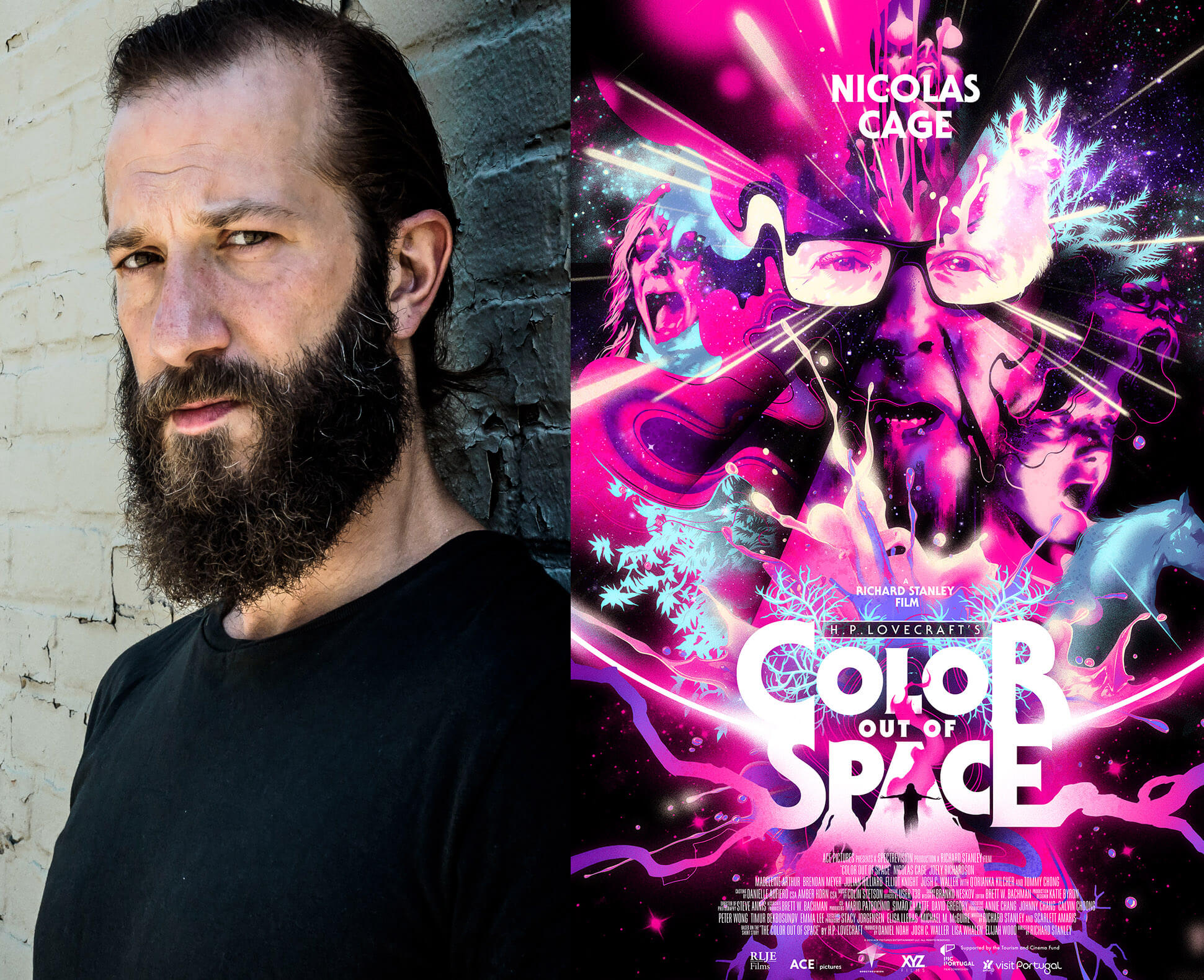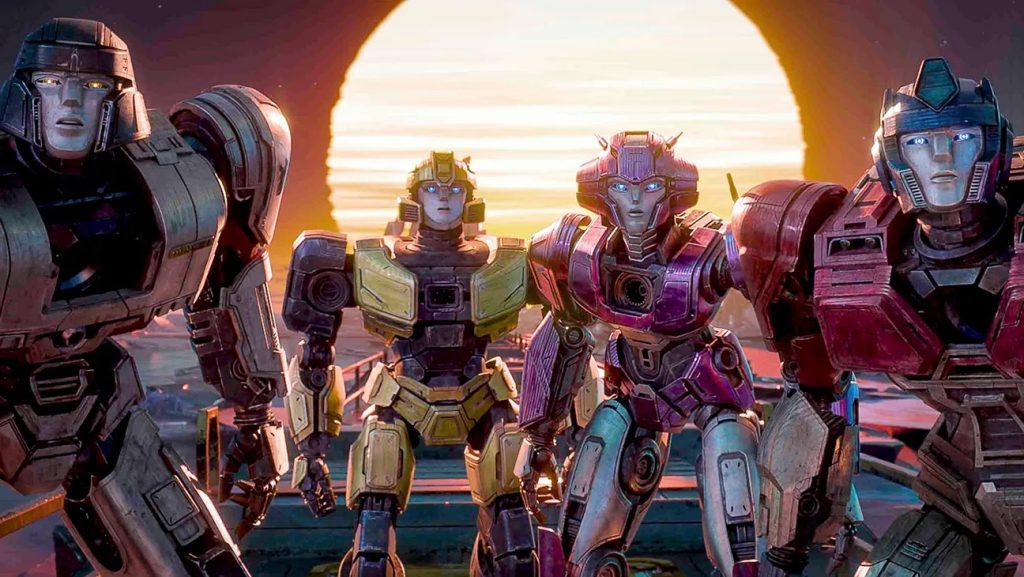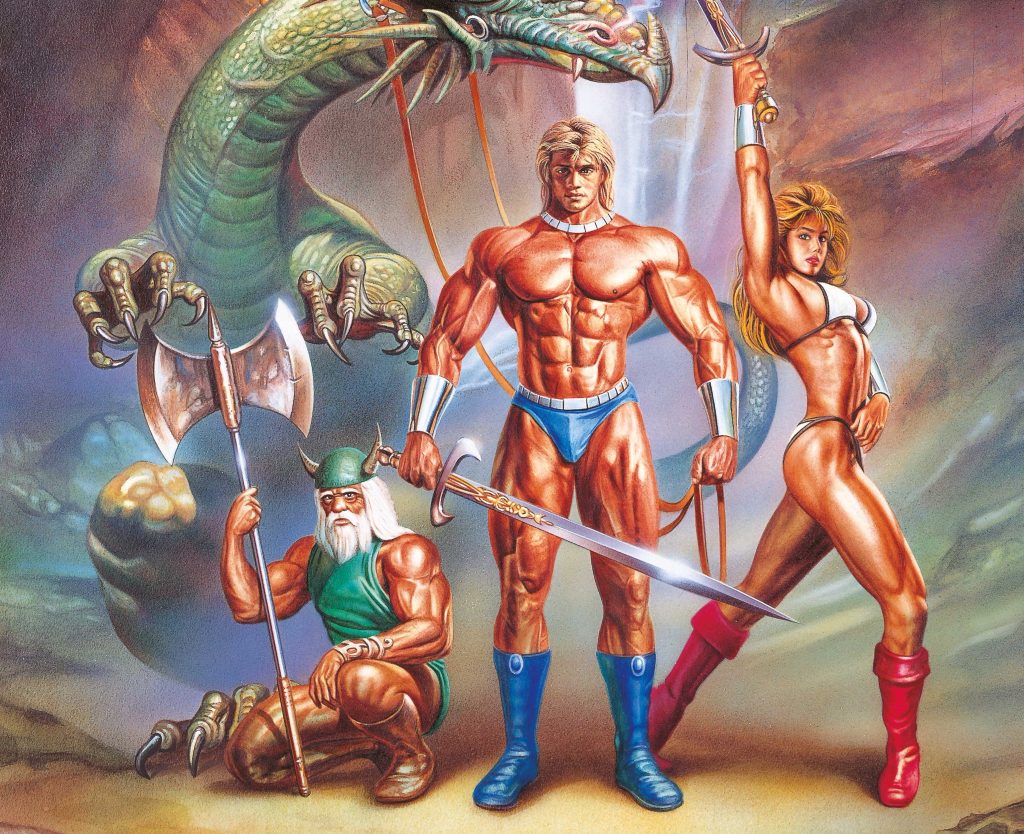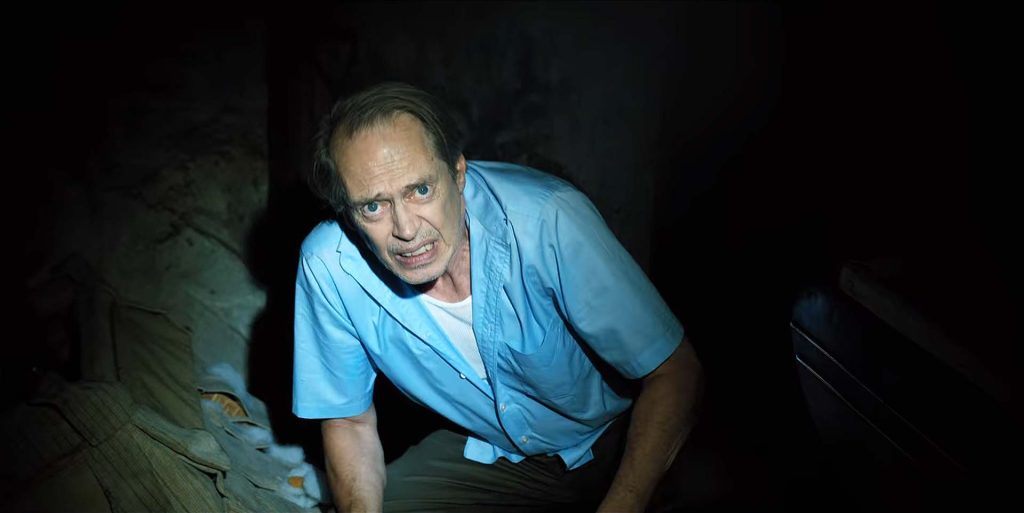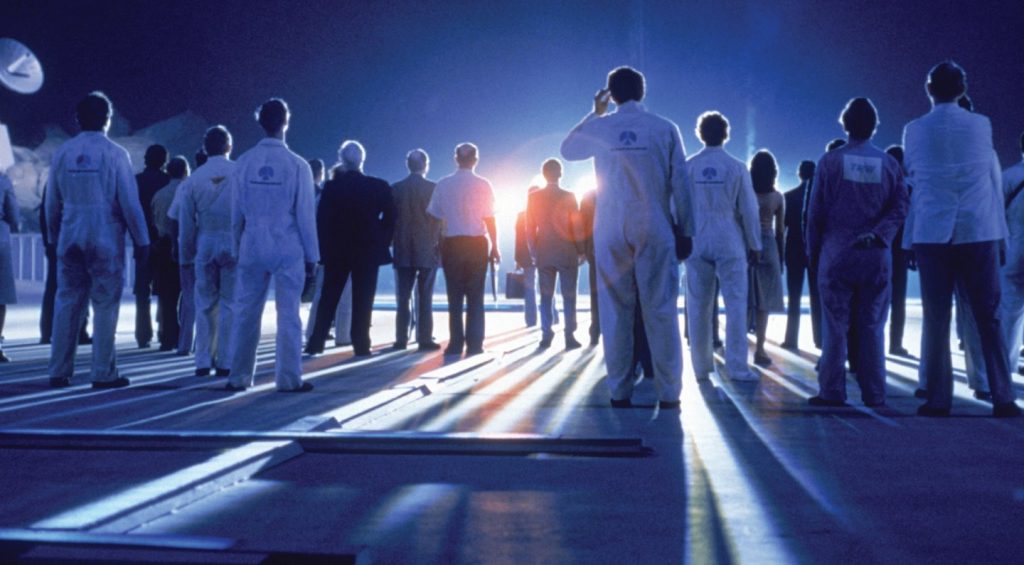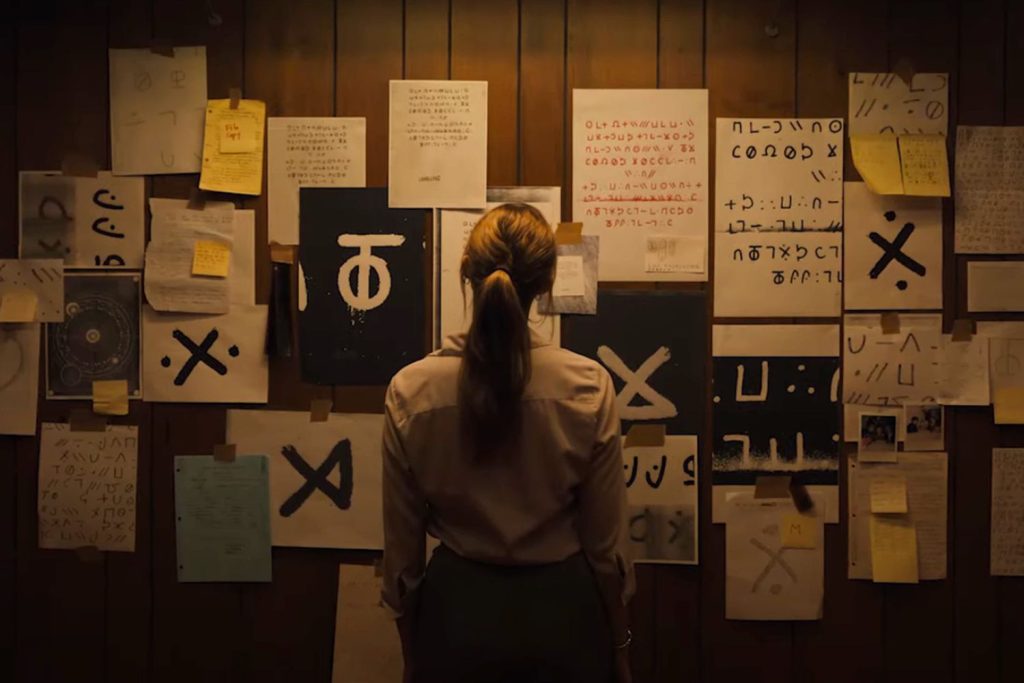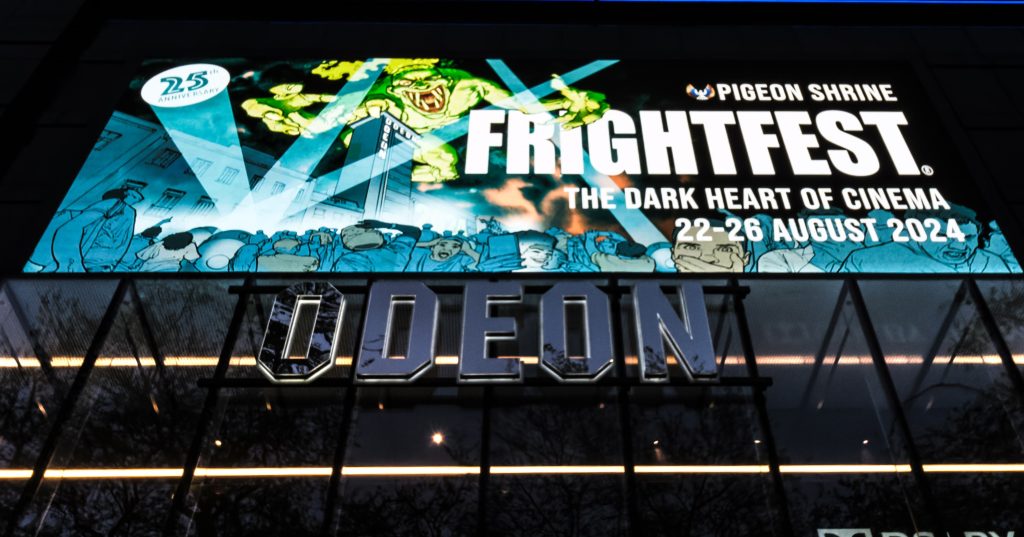Composer and musician Colin Stetson’s score for Ari Aster’s 2017 film Hereditary made his name as someone who can create beautiful, yet extraordinarily disconcerting film music. However, Stetson’s work for director Richard Stanley’s comeback, the brand-new adaptation of H.P. Lovecraft’s Color Out of Space, puts a bow on that name and firmly seals the deal. With the film’s visual palette requiring the composer to really stretch and create a soundscape which does a lot of heavy lifting, Stetson’s music is readily up to the task, and stands on its own as a terrifying journey. We spoke with Stetson about Color Out of Space, his work with Ari Aster on Hereditary, as well as the upcoming Adult Swim adaptation of Junji Ito’s manga Uzumaki…
STARBURST: Color Out of Space is finally out, as well as your score; how are you feeling about the whole situation?
Colin Stetson: Well, I feel great. It was an incredibly fun project to work on and to make. It’s always really exciting when these things come full circle. I delivered the music that first week of August and so, by this time, I’ve been so removed from it, that it is really lovely to hear all the bits and pieces that are being played and be inundated with that world again, after so many months of me apart from it. So, it’s extremely fun and exciting.
How early in the process did you come in?
Very late in the process, actually. I remember for Hereditary, I was the first person they’d spoken with, so I was in the mix for three years and had started writing music for Ari Aster off the script, probably a year before it premiered at Sundance. This one, I started writing and was done, I would say, within two months.
The movie played at TIFF in early September, so if you delivered it in early August, that is very late in the process.
Yeah, I was brought on right around June, and so just dove in, and hit the ground running, as they say.
How familiar were you with the Lovecraft story before you started working on the film?
I was not familiar with the Lovecraft story, specifically. I had heard that Richard [Stanley] was coming back. To be entirely honest, they had me at Richard is coming back, but the fact that he was doing a Lovecraft story – and one that was very near and dear to his heart, as it was one of the stories that his mother had been telling him as bedtime stories as he was growing up – and then, to top that off with it being Spectravision? I had been fans of what they had done with Mandy, and then getting a chance to work on something that that Nicolas Cage had done was also another ‘can’t pass on it’ opportunity.
I had been just in complete fascination of him and what he’s capable of bringing to the screen. I’ve watched Leaving Las Vegas dozens of times, and had been so inspired by his craft, so I was excited on quite a few fronts.
Watching the film, so much of the Lovecraftian aspect of it is very much that your imagination has to do a lot of work, as part of that. A score always helps to direct the viewer, in terms of emotions and things like that, but your score in this particular film has a lot of directing people to do, because it is a color, it’s almost like a synesthesia you’re having to create.
That’s the word I was looking for! Ding-ding-ding! When I when I first came in on it, Richard’s initial, broad, sweeping question posed to me was something along the lines of, “What exactly does a hyper advanced alien life-form that manifest themselves as a spectrum of light, in a color that does not exist in our reality – what does that sound like?” I love starting from places like that; from big, broad, ridiculous questions like that. So immediately, the task was to not only identify that and to define that, but also then to identify and define the theme: the overall aesthetic and mood for the hapless protagonists, whose lives are going to be upended and altered in every way, mutated by that alien, and how then to take those two things, and merge them, with one to infiltrate and inundate the other over the course of the film, and do so in a way that’s got to be kind of Lovecraftian: hallucinatory, surprising, and unexpected at every turn.
It was actually the most fun, ‘cause all these things are always a puzzle for me. When you enter into starting to score a film, all the pieces of the puzzle – the things that need to be figured out – it’s all a very simple equation. You know where you’re starting, you know where you’re ending, you got your point A and your point B, and you know the devices that are there to be utilised to get from one to the other, and the rest is just going and painting.
It’s interesting, because when you put it in terms of the colours and the sound and communication, we immediately flash to that end scene of Close Encounters of the Third Kind, but almost writ large across an entire film.
Thank you. I guess it’s one of the challenges, whenever you’re trying to do something that are there already. There are already monster movies, there are already horror films, there are already alien invasion, first contact movies, so you never want to really think about that and use archetypes. Beforehand, for this, I thought, if there is anything that’s using an archetypal structure, that I would need to find something akin to a Jaws moment. So, the sound that comes in as Jack is walking in the hallway when the colour is just about to land is, I guess, the colour theme. I actually wrote that hook right when I found out that this movie was being made. I was in the bathtub and I read about them making that movie, and then I was downstairs later on that day, and I was like, “You know, what this is probably how that would sound.” Then, later on, I ended up being able to actually take that thing that I wrote and use it as the theme for the colour, which is pretty rad.
With Hereditary, and now with Color Out of Space, those pictures have gotten like a wider release than some of the films you’ve scored in in the past. It seems interesting, because Hereditary is a horror movie, Color Out of Space is a horror movie, and the upcoming Uzumaki anime is very much a horror story, but in the scoring work you’ve done prior to this, there’s drama and there’s westerns. How did you come to horror? Was it with an interest in it, or is it just the projects themselves, with the script and the story that attracts you to these films?
I would have to say, for sure, the latter. In my case, as a consumer of film and music, it is roughly the same as my output as a performer and composer. I don’t have any particular bent. I would not call myself like a horrorphile or something, but I’ve been tapped to do mostly darker-themed pictures – thrillers and whatnot – but not exclusively, and that’s been really good. I was really I was very happy to be able to follow Hereditary up with something like The First, which unfortunately just had its one season and got cancelled, but it was a very fun show to work on and offered me the opportunity to flex a lot of different muscles, whereas with Hereditary, I took a route of avoiding recognisable theme, and melody, and convention. The First was something that really needed things in an epic, grand scope and so that something that was a lot of fun.
I don’t gravitate towards horror, per se, and Ari tapped me for Hereditary not because of the horror element inherent in my music, although he is acknowledging of and I am acknowledging of, that a lot of what it is that I create in the solo music does translate to many people as a lot of those sounds are inspiring a panic and other feelings of melancholy and distress. I totally get that. It’s not to say it’s not where my intention might be – it is where my intention lies – but not as the end result. You try to use those things to get in the door. That’s how you catch someone’s attention: by disturbing their equilibrium and then, once you’re there, once you have them, then you can actually direct them in some way to feel real emotion, not just to feel the things that they that they think they should feel, the kind of stock things that we’re inundated with every day.
I never really saw Hereditary as a horror film. It’s a narrative. It’s like a character study in grief and loss and familial dysfunction, but couched in the shell of horror, touching the guise of a horror film and so, I tried not to approach it as such. I didn’t want to approach it as a horror film, but now that most people know me as ‘the Hereditary guy’, I you should have seen what I’ve been offered. I didn’t want to do Color Out of Space because it was a horror film. I wanted to do it because it was Richard. Because it was a story that he was so passionate about. Because it was Spectravision, this was gonna offer up an opportunity to do something that was truly unique and a scenario where it would it would force me to challenge myself to do something I’d never done before. I learned a tremendous amount, working in a way I had not done before to get that score done, so that’s how I how I continue to try to approach new jobs.
Speaking of new jobs, just last year, you got to do your first video game, with Red Dead Redemption II.
I did do a fair amount of work for those guys over there on Red Dead. I wish I had time to play, ‘cause I hear it’s fucking fantastic, but I don’t, unfortunately.
There were so many musicians involved in that score. Duane Eddy plays guitar on it, and then on the soundtrack, you’ve Rhiannon Giddens and Daniel Lanois. It’s a big thing, but based on your response to this, we’re assuming this was a very positive experience for you, yeah?
Yes! My part of it was great, because largely 95% of what I do is absolutely solitary and so this was great — to have these idea come in from everybody and for them to send me in my workshop. Things that I would either be starting from some sort of a skeletal idea, or creating the skeletons myself and and sending back, and we collaborate. The bulk of the collaboration that I had was with my friends in Senyawa, and those fuckers are just the best, it was a playground. You get bass tracks from Senyawa, and then vice versa, and just collaborated with them back and forth in in our respective studios. It was super fun.
How’d you come to do Uzumaki? It seems to tie very nicely with Color Out of Space, because Junji Ito is very open in terms of how much Lovecraft influenced that particular work.
They approached me. It was as simple as that. They had the idea to work with me, and it was one of those things you’re just crossing your fingers that the scheduling is all gonna work out. [Adult Swim] are absolutely the kind of project and organisation that I love, because those guys came well over a year in advance to say, “Can you and would you like to do this?” They got a very prompt and enthusiastic, “Yes!” because that’s the kind of thing that I like to do: this singular, original, particular and uniquely voiced story.
Again, it doesn’t have to do with the genre. It’s just about the storytelling there. The thing that I love about Uzumaki is that it is not only does it harbour some of the most disturbing imagery, but it is also gorgeous. It is beautiful and haunting, and some of the scenes? The way they’re stylised, and imagining them brought to life in the way that they’re talking about animating it? I mean, I’m blown away. I’m very excited because it’s really merging a lot of my favourite things: being able to get truly twisted and disturbing, while doing so in such a way that is worthy – in a way that is showing real beauty and elegance.
Color Out of Space is out now in the US and is released in the UK on February 28th.

